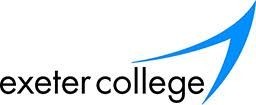A new paradigm for learning based on the UN's Sustainability Development Goals
Richard Masters BTech (Aero Eng), MA (Ed Tech), MA (DS), Cert Ed, MRAeS -This blog gives my thoughts on the future delivery of education, not just in the United Kingdom, but all around the world. Why do I feel I have the authority, experience and expertise to write such a piece? It is because I come from a background where I twice had the ‘God’s Eye View’ of the very broad requirements and I was in position to change things to improve the effective support and delivery to improve the eventual outcomes at a national or global level.
This article gives my opinion, with personal examples, of why I believe the current academic and vocational learning systems are failing so badly to meet the needs of the modern world. It offers a completely new paradigm of learning based on five fundamental areas:
Make the highest aim of learning to make the world a more sustainable, beautiful and enjoyable place for everyone by identifying all learning and assessment opportunities against the United Nation’s Sustainability Development Goals.
Student-led partnerships predominantly using professional networking sites to enable each student to build their own mentoring and professional ‘though-life learning’ networks as appropriate to their needs.
Blending of all learning opportunities in all environments, industries, communities and internationally into one holistic curriculum.
Opening-up entry to more learners at and above level 3 (Year 12) by more innovative entry assessments.
Allowing students to ‘Pick and Mix’ qualifications so that they can get a mix of subjects and disciplines they, or their employers, want THEM to study in their vocational qualifications and degrees.
There is continual and mounting evidence that the education system is getting things very wrong, but why is it failing so badly when the educational leadership has been putting so much effort into continually ‘improving standards’?
I believe that the fundamental reason is that ‘standards’ require a high degree of ‘objectivity’ in defining what it is that should be achieved and, associated with that, is a high degree of objectivity in how each element should be taught and assessed.
This objectivity and the related specification under-pinning the educational delivery, forces the system into an unwanted position of elitism (in the sense that someone is telling someone else what they need to learn), conformity, compliance, linearity, inequality, discrimination, exclusion which is highly obstructive to any change for the better. The system plays by all these rules with the overall effect that it becomes unfit to meet the rapidly changing business and individual learning needs of every student.
Using the UN SDGs as a framework for all learning objectives:
In its broadest sense, I believe the purpose of education is to bring economic growth, sustainability, beauty and enjoyment to the world - Why not use these as the ultimate guidance to stimulate creativity, critical thinking, real learning and assessment opportunities and to engender a need for actual collaboration to create real-life beneficial outcomes?
When I’m teaching the Engineering Project modules now I just tell my students that ultimately sustainability, beauty and increased enjoyment are the aims for all their projects and that I don’t care what they do as long as their ‘product’ relates in some way to the delivery of one or more of the SDGs. As mentioned before, two of my students doing their projects have won the top academic awards in the UK for the last two years, but they have also created and implemented real processes in industry which have been embedded to benefit the planet. I believe that every single SDG below can be used as a framework for potential learning opportunities for every subject at every level (i.e. infants to degree level).
The Four Elements of the Proposed New Paradigm Bringing this all together, my proposed new paradigm aims to ‘grow’ our students’ learning as THEY require by using a combination of the 4 principal elements below:
1. Student-led partnerships predominantly using free but legitimate professional networking sites – to enable each student to build their own mentoring and professional ‘though-life learning’ network as appropriate to their needs.
2. Blending of all learning opportunities in all environments, industries, communities and internationally into one holistic and naturally updated curriculum.
3. Opening-up entry to more learners at and above level 3 (Year 12) by more innovative entry assessments.
4. Allowing students to ‘Pick and Mix’ qualifications so that they can get a mix of subjects and disciplines they, or their employers, want THEM to study in their vocational qualifications and degrees.
The complete analysis conducted by Richard Masters at Exeter College can be accessed here.
This article gives my opinion, with personal examples, of why I believe the current academic and vocational learning systems are failing so badly to meet the needs of the modern world. It offers a completely new paradigm of learning based on five fundamental areas:
Make the highest aim of learning to make the world a more sustainable, beautiful and enjoyable place for everyone by identifying all learning and assessment opportunities against the United Nation’s Sustainability Development Goals.
Student-led partnerships predominantly using professional networking sites to enable each student to build their own mentoring and professional ‘though-life learning’ networks as appropriate to their needs.
Blending of all learning opportunities in all environments, industries, communities and internationally into one holistic curriculum.
Opening-up entry to more learners at and above level 3 (Year 12) by more innovative entry assessments.
Allowing students to ‘Pick and Mix’ qualifications so that they can get a mix of subjects and disciplines they, or their employers, want THEM to study in their vocational qualifications and degrees.
There is continual and mounting evidence that the education system is getting things very wrong, but why is it failing so badly when the educational leadership has been putting so much effort into continually ‘improving standards’?
I believe that the fundamental reason is that ‘standards’ require a high degree of ‘objectivity’ in defining what it is that should be achieved and, associated with that, is a high degree of objectivity in how each element should be taught and assessed.
This objectivity and the related specification under-pinning the educational delivery, forces the system into an unwanted position of elitism (in the sense that someone is telling someone else what they need to learn), conformity, compliance, linearity, inequality, discrimination, exclusion which is highly obstructive to any change for the better. The system plays by all these rules with the overall effect that it becomes unfit to meet the rapidly changing business and individual learning needs of every student.
Using the UN SDGs as a framework for all learning objectives:
In its broadest sense, I believe the purpose of education is to bring economic growth, sustainability, beauty and enjoyment to the world - Why not use these as the ultimate guidance to stimulate creativity, critical thinking, real learning and assessment opportunities and to engender a need for actual collaboration to create real-life beneficial outcomes?
When I’m teaching the Engineering Project modules now I just tell my students that ultimately sustainability, beauty and increased enjoyment are the aims for all their projects and that I don’t care what they do as long as their ‘product’ relates in some way to the delivery of one or more of the SDGs. As mentioned before, two of my students doing their projects have won the top academic awards in the UK for the last two years, but they have also created and implemented real processes in industry which have been embedded to benefit the planet. I believe that every single SDG below can be used as a framework for potential learning opportunities for every subject at every level (i.e. infants to degree level).
The Four Elements of the Proposed New Paradigm Bringing this all together, my proposed new paradigm aims to ‘grow’ our students’ learning as THEY require by using a combination of the 4 principal elements below:
1. Student-led partnerships predominantly using free but legitimate professional networking sites – to enable each student to build their own mentoring and professional ‘though-life learning’ network as appropriate to their needs.
2. Blending of all learning opportunities in all environments, industries, communities and internationally into one holistic and naturally updated curriculum.
3. Opening-up entry to more learners at and above level 3 (Year 12) by more innovative entry assessments.
4. Allowing students to ‘Pick and Mix’ qualifications so that they can get a mix of subjects and disciplines they, or their employers, want THEM to study in their vocational qualifications and degrees.
The complete analysis conducted by Richard Masters at Exeter College can be accessed here.












